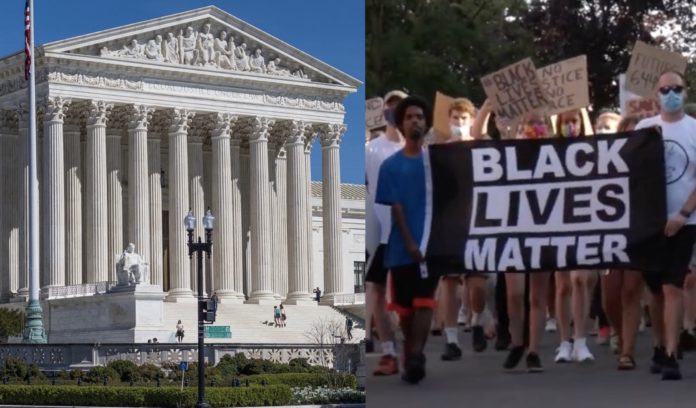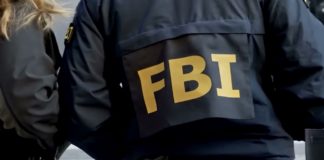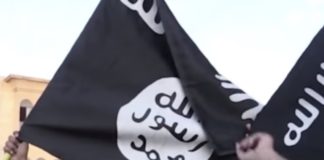OPINION | This article contains commentary that reflects the author's opinion.
The radical left-wing political agenda of the Black Lives Matter movement suffered two crushing blows by the Supreme Court.
Two rulings this week took the side of police officers.
Both cases involved qualified immunity and incidents of excessive force.
“Qualified immunity is the legal doctrine that shields government officials, such as police officers, from lawsuits except in cases when they have clearly broken established law,” Western Journal notes.
Anti-police groups on the left hope to eliminate these legal protections.
Both cases involved suspects who were reportedly in the process of victimizing women. Then the police showed up.
The Supreme Court ruled that in neither case had the officer broken the law as established by previous rulings.
More on these cases via Western Journal:
In the first case, officer Daniel Rivas-Villegas from Union City, California, responded to a call from a terrified 12-year-old girl who said she and her mother and sister had barricaded themselves in a room because one Ramon Cortesluna was in the process of destroying stuff in the house with a chainsaw (emphasis mine).
After another officer shot Cortesluna with bean bag rounds, Rivas-Villegas knelt on his back to retrieve him of the knife he was wielding.
Cortesluna sued — what is this world coming to, after all, when you can’t terrorize women and children without fear of getting roughed up when the cops show up to intervene?
In the second case, a woman in Tahlequah, Oklahoma, called police saying that her drunken ex-husband, Dominic Rollice, refused to leave her home. When police showed up, they confronted Rollice in the garage, where he picked up a hammer which he refused to drop when ordered by police, whom he approached with the tool raised over his head. He was shot and killed.
The Supreme Court reversed a lower court ruling that had found the officers broke the law, stating that “not one” case “comes close to establishing that the officers’ conduct was unlawful.”






